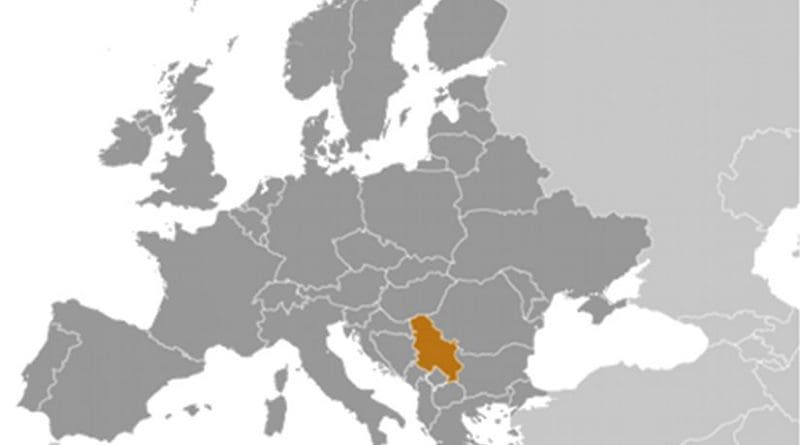Serbia: Police Make More Red Beret Arrests
By SETimes
By Igor Jovanovic
Serbian police on September 20th arrested four former members of a special operations unit that organised a November 2001 rebellion against the government. The fifth suspect, belonging to a unit known as the Red Berets, avoided arrest as he is out of the country.
Deputy Prime Minister Bozidar Djelic said after the arrests that it was “of state importance” to reveal the possible political background of their rebellion. “I expect the investigation to provide answers, as does Zoran Djindjic’s family and all Serbian citizens,” Djelic said.
The Red Berets were a special unit of the Serbian secret police, formed during the former Yugoslav conflicts. The unit’s former commander, Milorad “Legija” Ulemek, was sentenced to 40 years in prison for the 2003 assassination of Prime Minister Zoran Djindjic in Belgrade.
For some Belgrade politicians and analysts, the latest arrests show that light is finally being shed on the political connections behind Djindjic’s murder. Others, though, see it as part of the pre-election campaign in Serbia, and doubt that it will deliver results.
All agree on the necessity of finding those who ordered the killing. There is widespread doubt among the Serbian public that it was organised solely by Ulemek and his “Zemun Clan”.
Lawyer Bozo Prelevic, who was the assistant interior minister in Djindjic’s cabinet, said it is good that such an investigation is taking place. However, he said, the probe should have been launched much earlier.
Coming a decade after the 2001 rebellion, he said, there is a strong likelihood that the trail will have gone cold.
Zemun gang member Milos Simovic, arrested in Croatia after years of hiding, said at the trial that he knew who had ordered Djindjic’s murder and who among the politicians had known he would be killed.
“Simovic’s statement is not revolutionary, because other gang members said the same before, yet the prosecution has done nothing so far. With his statement, the indictee is attempting to bargain with the prosecution that may lighten his sentence,” Prelevic told SETimes.
“I think all this is only meant to divert the public’s attention from three topics – Kosovo, relations with the EU, and the difficult economic situation,” he added.
Milos Djorelijevski, a journalist covering the Djindjic murder trial, says it is difficult to expect Ulemek’s subordinates to provide more information on the events than he did.
“Current opposition politicians and their associates, who allegedly knew that Djindjic was going to be assassinated, are sporadically mentioned in public. Some of them were detained after the prime minister’s death, but were released without an indictment, and some were never even questioned, which leaves the impression that their names are being mentioned as part of the election campaign,” Djorelijevski told SETimes.

